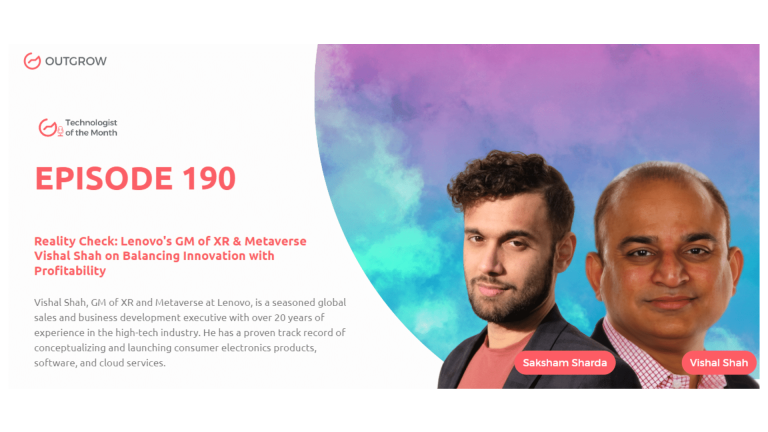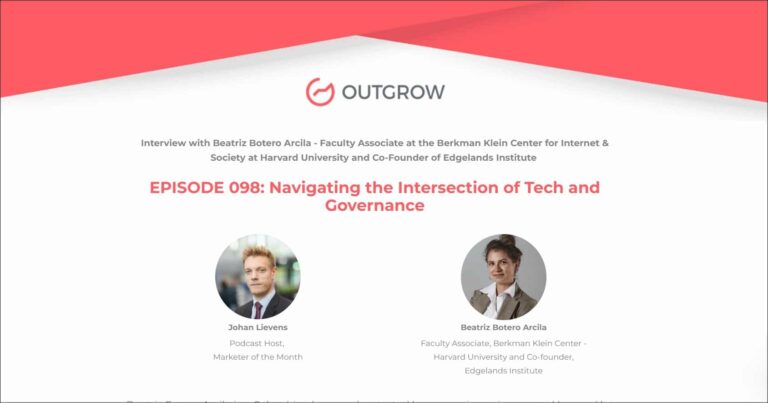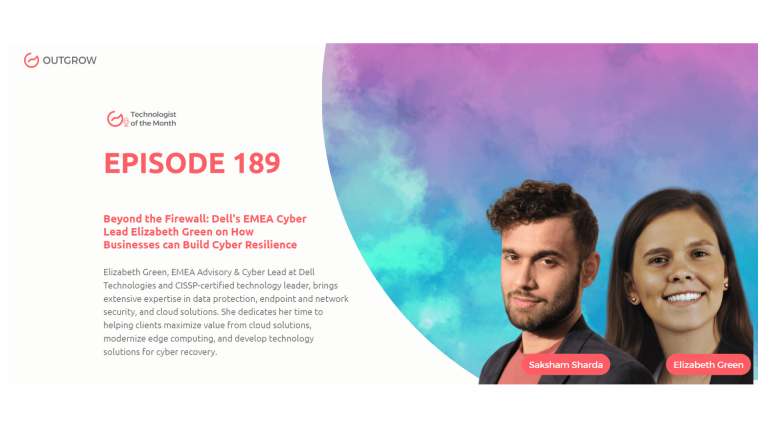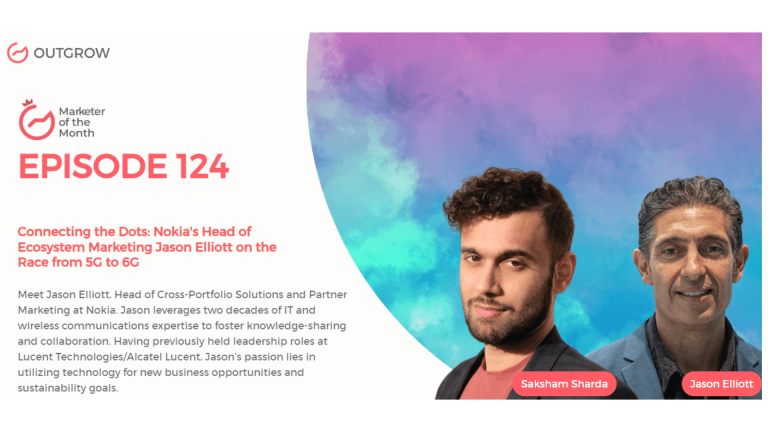Summarize with :
EPISODE 213: Marketer of the Month Podcast with Chris Duffey
Table of Contents
Hey there! Welcome to the Marketer Of The Month blog!
We recently interviewed Chris Duffey for our monthly podcast – ‘Marketer of the Month’! We had some amazing insightful conversations with Chris and here’s what we discussed about –
1. Exploring AI’s role in creativity, emphasizing the distinction between AI and generative AI.
2. Adobe’s approach to AI ethics through responsibility, accountability, and transparency.
3. Addressing artists’ concerns about AI, focusing on understanding the aspects that might cause fear.
4. How AR, the Metaverse, and AI complement each other in creating personalized, immersive experiences.
5. Media’s role in connecting society, raising awareness, and shaping public perception of emerging technologies.
6. Addressing common misconceptions about AI’s role in creativity, emphasizing its potential to enhance and not replace human creativity.
7. Need for policies that foster innovation while safeguarding consumer interests.
About our host:
Dr. Saksham Sharda is the Chief Information Officer at Outgrow.co. He specializes in data collection, analysis, filtering, and transfer by means of widgets and applets. Interactive, cultural, and trending widgets designed by him have been featured on TrendHunter, Alibaba, ProductHunt, New York Marketing Association, FactoryBerlin, Digimarcon Silicon Valley, and at The European Affiliate Summit.
About our guest:
Chris Duffey is the Strategic Development Lead for Emerging Solutions at Adobe, where he focuses on leveraging cutting-edge technologies like AI, AR, Metaverse, and Web3 to create growth opportunities for brands and organizations. His work bridges technology and creativity, aiming to drive innovation across industries while inspiring future-focused thinking.
AI’s Promethean Spark: Adobe’s Head of GenStudio Chris Duffey on how to set your Creativity Ablaze in the Modern Market
The Intro!
Saksham Sharda: Hi, everyone. Welcome to another episode of Outgrow’s Marketer of the Month. I’m your host, Dr. Saksham Sharda, and I’m the creative director at Outgrow. co. And for this month we are going to interview Chris Duffey who is the Head of GenStudio at Adobe.
Chris Duffey: Great to be here. Thank you.
Don’t have time to read? No problem, just watch the Podcast!
Challenge yourself with this trivia about the exciting topics Chris Duffey covered in the podcast.
Or you can just listen to it on Spotify!
The Rapid Fire Round!
Saksham Sharda: At what age do you want to retire?
Chris Duffey: Never.
Saksham Sharda: How long does it take you to get ready in the morning?
Chris Duffey: Depends.
Saksham Sharda: Most embarrassing moment of your life?
Chris Duffey: On a daily basis.
Saksham Sharda: Favorite color?
Chris Duffey: Orange.
Saksham Sharda: What time of day are you most inspired?
Chris Duffey: Evening.
Saksham Sharda: How many hours of sleep can you survive on?
Chris Duffey: Four.
Saksham Sharda: The city in which the best kiss of your life happened.
Chris Duffey: New York.
Saksham Sharda: Pick one, Elon Musk or Mark Zuckerberg.
Chris Duffey: Elon.
Saksham Sharda: How do you relax?
Chris Duffey: Take a walk.
Saksham Sharda: How many cups of coffee do you drink per day?
Chris Duffey: Too many.
Saksham Sharda: A habit of yours that you hate?
Chris Duffey: Overthinking.
Saksham Sharda: The most valuable skill you’ve learned in life.
Chris Duffey: Creativity.
Saksham Sharda: Your favorite Netflix show.
Chris Duffey: I don’t watch.
Saksham Sharda: One-word description of your leadership style.
Chris Duffey: Teacher.
Saksham Sharda: Ideal vacation spot for relaxation.
Chris Duffey: Greece.
Saksham Sharda: Key factor for maintaining a work-life balance.
Chris Duffey: Inspiration.
The Big Questions!
Saksham Sharda: As a leading tech futurist at Adobe, how do you envision the role of AI evolving in the creative industry over the next five years?
Chris Duffey: I think what I’ve been calling a Promethean moment for not only the industry but on an individual creativity level as well. Before answering that question, I would delineate the distinction between artificial intelligence and generative AI. In many ways, AI is focused on predictive and automotive tasks and generative AI is focused on the ability to generate. At Adobe we think about it in terms of four or five horizons generative images, generative video, generative 3D, generative audio, and possibly generative code. So in terms of the latter, with regards to generative now anyone who has an idea has the tools that can help them get that idea out of their head to create the idea and generate it.
Saksham Sharda: How does Adobe plan to support creatives in adapting to these emerging AI tools and technologies?
Chris Duffey: One of the most important things, quite foundational in terms of our approach to supporting creativity is having an ethical framework. We think of it in terms of three pillars. The first one is a responsibility, the second is accountability, and the third is transparency. In terms of responsibility, we train only on our data and so that allows us to fully indemnify everything that gets generated. So for the end consumer user creator offers greater peace of mind with how they’re creating. Secondly, in terms of accountability, we also have created a creator economy and what we mean by that is now anyone, anywhere can contribute their artwork. And if they would like, they could have the system trained off of their content. And so we then reward them for allowing us to train off that and that’s creating this broader ecosystem, creator economy. And then thirdly in terms of transparency, a number of years ago, we created the content authenticity initiative comprised of hundreds of software companies, hardware companies, and media companies. And so we now have a greater end-to-end transparency capability in terms of allowing the end user to see how things were trained, how things were augmented, how content was distributed, and we’re getting close to showcasing how things performed in terms of effectiveness.
Saksham Sharda: And what would be your position on artists who are afraid of AI stealing their creativity or art?
Chris Duffey: I would be interested in terms of what aspects they are afraid of.
Saksham Sharda: Okay, so let’s talk a bit about your book “Superhuman Innovation” which was co-authored by AI. What insights did this collaboration provide about the potential and limitations of AI in the creative processes?
Chris Duffey: Looking back at my career, there have been a few instrumental moments, one of them being working with IBM Watson on a healthcare use case for doing predictive healthcare outcome analysis for orphan disease states, leveraging artificial intelligence. And that was one of the first moments where I saw firsthand the ability to compress the gap between data and creativity. And that really put the seed in my head in terms of wanting to explore it deeper. That was about 15 or so years ago. And so around 2017, kind of made the jump to write a book. And again, saw firsthand how AI can amplify creativity. So the premise was not only to write a book about AI, but actually leverage AI in writing it. And it was pre-chatGPTs and the large language models. It was based on not getting too technical with language transformers. So did a compilation tapestry of different technologies and APIs that really allowed me I firmly believe to write a better book, but it also got me to write a faster book. I did it in about six to eight months. And from what I hear, the average is roughly around 12-plus months. A number of use cases, and examples to showcase. After every chapter, I would run a sentiment analysis, system on it and it would give me near real-time feedback in terms of things that were too humorous or not factual enough, even so much so it was in a different writing style. And so I’m quite energized and inspired. We’ve now evolved from just text capabilities, but also now we can see the promise really come to life in terms of generative images and video in 3D. So it’s a Promethean moment for creativity going forward because of generative AI.
Saksham Sharda: So are there any surprising outcomes or challenges during the AI collaboration process for your book?
Chris Duffey: One of the big learnings, and observations is maybe we overstretched the tech at the time, but we were trying to have a humor joke-based system. You can see, I still refer to the co-author, Amy the AI system as a true co-author and so built a system trying to replicate some forms of humor and jokes. And some of the early, earlier jokes in the book were not so funny which is kind of ironically funny, but as the system got smarter and learned throughout the writing process towards the end there were some pretty funny jokes. So I think that’s a great metaphor for how systems of machine learning can get better and better over time.
Saksham Sharda: In your role at Adobe, then what are the most exciting developments you’re currently working on in the field, not just GenAI, but also AR and the Metaverse?
Chris Duffey: In many ways, they’re quite complementary and a natural evolution. For years, we’ve been talking academically about the ability to create personalized experiences.
We truly now have the technologies, the platforms, and what I like to call the creative operating system in place. And so a natural extension to that is to now create more immersive, personalized experiences. And we’re seeing some of the early technologies really help amplify that and accelerate that in terms of if we call it the metaverse, spatial or immersive.
Saksham Sharda: Given your extensive experience in digital marketing and creative consultancy, what do you see as the biggest challenges and opportunities for brands leveraging AI and all these other emerging technologies?
Chris Duffey: In many ways a lot of this talk about the emerging solutions, emerging technology brings us back to the foundation of the craft of the industry in terms of marketing, advertising, and that is finding a unique insight, a story, and really expressing that in a creative, well-designed way. And I think that’s a universal timeless characteristic of what really resonates with the end consumers but also propels brands forward going forward.
Saksham Sharda: And how do brands then while going forward effectively navigate the ethical considerations and potential biases inherent in AI technologies?
Chris Duffey: It multifaceted everything from data security, privacy, respecting local and regional guidelines and laws, and so on. And so I think the going gold standard is really to start small, do two to three-week sprints, have some metrics of learnings, and then kind of land and expand from there.
Saksham Sharda: Leaving all these top questions aside, could you tell us a bit more about what your typical day looks like? You wake up in the morning and then?
Chris Duffey: I’m not sure if there’s a typical day, but I usually get up around 6am and I try to take my daughters to school every morning. Good to hear about their upcoming day. Then hit the ground running in terms of some e-mails then go into a series of internal calls and customer calls. And I think that that provides me a unique, valuable, advantage point in terms of hearing real-world friction points and problems and then can help translate that into how we can build products, services, and software to address those challenges.
Saksham Sharda: How much of this time is taken up by the meeting?
Chris Duffey: Quite a bit.
Saksham Sharda: And what advice would you have for people looking to get into your industry?
Chris Duffey: I think from a very high level this notion of curiosity continues to be a great starting point. What does that individual find interesting? Where do they want to solve? And you know they are playing the long game. These are long days in many ways. And the hope is a long career. So you have to love what you do. And I’ve always gravitated towards things that I’ve found fascinating, whether it be health care, artificial intelligence, and ultimately creativity.
Saksham Sharda: Your work has been featured by numerous high-profile media outlets. What role do you think media exposure plays in advancing the public’s understanding and acceptance of emerging technologies?
Chris Duffey: It’s the great connector of our society in many ways. It helps surface patterns of thinking. It helps us stay aware of topics, and I think it’s only going to get bigger and better and more resonant on a personal level.
Saksham Sharda: Given that, what are some common misconceptions about AI and emerging technologies that you encounter? How do you address them?
Chris Duffey: I think there’s this notion of intelligence and with generative AI equally, I think there’s some contemplations around the role when and where within the creative process, and what we’re starting to see is really to delineate out the when and how of using generative AI in terms of creativity. You can think of creativity in terms of a spectrum, everything from the insight-gathering stage to the ideation, to the production, to the distribution and measurement. And within each of those, there are moments where gen AI can really become an accelerator and an amplifier interestingly enough in many ways, we’re almost going backwards, forwards, along that spectrum. There’s a lot of current focus in terms of the production stage just taking out inefficiencies in terms of creating greater scale for variance and localization and so on. And so we’re slowly moving back across that spectrum over to ideation. Currently within ideation, some really exciting things are happening in terms of offering up different avenues of thinking or different ways of solving a problem. As we’re moving across that spectrum over to the problem-solving bit, we’re also seeing some great examples of how the AI system or generative AI system can understand the types of thinking that are going on and introduce different ways of thinking all the way over to the insights as well.
Saksham Sharda: You’re also a board member of the Association of National Advertisers and the Consumer Technology Association. What trends do you foresee shaping the future of advertising and consumer technology itself?
Chris Duffey: I’ve always held the belief that B2B marketing is one of the unsung, untapped sectors of the industry. In many ways, B2B leads the industry in terms of having a very defined audience. And so I think that that can be used as a springboard for greater learnings, how the industry can really hone in on having very precise messaging and marketing that’s resident to each individual within their different segments in terms of CS, CTA continues to be a yearly place to go to see the latest and greatest in terms of tech patterns emerging earlier this year was really blown away by some leapfrogs in terms of generative audio. And so I think that’s a great example of festivals where ultimately humans are coming together to co-share ideas and have collective conversations.
Saksham Sharda: What initiatives or policies do you believe are crucial for both the ANA and the CTA to prioritize in order to foster innovation while also protecting consumer interests?
Chris Duffey: In many ways, we’re applying new technologies for an older reality. And I would offer a continued focus on having the focus on the here and now, but also in parallel, We all have to collectively have an eye towards the future and what that future we all collectively would like.
Saksham Sharda: As someone who frequently delivers keynotes on generative AI and computational creativity, what message do you find resonates most with audiences worldwide?
Chris Duffey: I generally get the feedback that there is a sense of optimism around AI and generative AI in the headlines. Sometimes we isolate one thing, but when we zoom out and look at the broader impact that it can have in terms of not only effectiveness but also greater efficiency in terms of enterprise and customer behavior and benefit, the possibilities are infinite. So I continue to try to reinforce it. The continuous great innovation, not only happening within the tech itself, but also the outcomes that it’s providing.
Saksham Sharda: How do you tailor these presentations to different audiences from industry experts to the general public?
Chris Duffey: In many ways, there are a lot of similarities. I think the first half is to paint that big picture. I call it the North Star architecture and that traditionally is about 2 to 3 years out and then talk about how we reverse engineer to get there. And that I think is very applicable for a large global enterprise, all the way down to a smaller startup. And so I think that continues to be a universal theme focus going forward. We then get into conversations around responsible AI and the need for greater privacy, bias prevention and more conversation from a public and private sector standpoint around regulation. And so that seems to be very foundational in these conversations as well. And from there, then it can deviate in terms of each opportunity, each event has a snowflake aspect to it. And so that’s where it can then get tailored into the specific industry, the specific region, and so on.
Saksham Sharda: And all these speaking engagements, including with notable figures like Kim Kardashian, how do you bridge the gap between technology and mainstream culture?
Chris Duffey: In many ways, the value prop of technology is to help us become more human. And I think that’s a great takeaway and quite valuable for audiences and myself to continuously define and refine going forward.
Saksham Sharda: Do you have any example of a particularly memorable or impactful speaking engagement and what makes it stand out? Do you have any story around that?
Chris Duffey: What I love about the opportunities to go to events around the world is I get to meet great people all day, every day, and hear different perspectives, and different use cases. And with that said, I also get to see commonalities. And I think there continues to be where we’re more alike than not. And that energizes me to help create technologies that continue to bring us closer together.
Saksham Sharda: Being positioned in this with experience in both creative strategy and also emerging technologies, how do you see AI transforming the landscape of digital marketing?
Chris Duffey: It’s quite profound. I’ve tried to gravitate away from using the word transform to maybe a stronger word, reinvention and so unlike technologies previously that were either allocated to, let’s say, a CIO or a CTO, it is now truly a contract across not only the C suite but really every individual, every discipline within the enterprise. And so this is really surfacing a lot of great new opportunities, but also really bringing in some new challenges in terms of how do you reinvent the workflow? How do you reinvent the operating model? How do you reinvent the monetization model, let alone the product in itself? And so we’re really at an interesting moment where we’re addressing the here and now, but we’re also reinventing that future going forward.
Saksham Sharda: But is it also going to lead to the creation of a flood of marketing content everywhere?
Chris Duffey: I think even within the past 12 months, last year, a lot of the conversations specific to gen AI, we’re focused on efficiency gains and volume. And what we’re seeing is again, getting back to the foundation is great work really resonates. So it’s not so much anymore about the sheer quantity. Yes, volume and scale will always be important, but it’s really about having more effective experiences, messages, and stories, and I think that that’s going to stay true going forward as well.
Saksham Sharda: Let’s talk a bit about storytelling and marketing. How are these technologies going to change the nature of storytelling?
Chris Duffey: I think we’re turning the corner with some tech breakthroughs in terms of where already into immersive experiences, we could replace experiences with storytelling, and I think people will continue to be excited and drawn to the more immersive the experience or the more immersive the brand story, I think it will be quite captivating everything from the vision pro to the other headsets out there. I think we’re still in the very early days, but they give an indication of how it’s not only tapping into one or two senses, but it’s multi-sensory going forward.
Saksham Sharda: The last question for you is of a personal kind. What would you be doing in your life if not this?
Chris Duffey: I truly love it. I think by nature, I’m a creator, so I probably would be creating something.
Let’s Conclude!
Saksham Sharda: Thanks, everyone for joining us for this month’s episode of Outgrow’s Marketer of the Month. That was Chris Duffey who is the Head of GenStudio at Adobe.
Chris Duffey: Pleasure. Thanks for having me.
Saksham Sharda: Check out the website for more details and we’ll see you once again next month with another marketer of the month.

Muskan is a Marketing Analyst at Outgrow. She is working on multiple areas of marketing. On her days off though, she loves exploring new cafes, drinking coffee, and catching up with friends.








